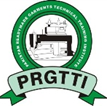Apparel Stitching Machine Operator Course
Eligibility & Duration:
The Apparel Stitching Machine Operator course is designed for individuals interested in pursuing a career in garment manufacturing. Eligibility requirements are typically minimal and may include a high school diploma or equivalent qualification, although some programs may not have strict educational prerequisites. The course duration can vary widely, with some programs lasting a few weeks for basic skills, while more comprehensive programs may span several months.
Awarding Body:
- Punjab Board of Techncial Education (PBTE)
- Textile Commissioner’s Organization (TCO)
Course Objectives:
- The primary objectives of the Apparel Stitching Machine Operator course are:
- Machine Operation Skills: To provide students with hands-on experience in operating various types of stitching machines used in apparel manufacturing.
- Garment Assembly: To teach students the techniques for stitching, seaming, and assembling garments accurately and efficiently.
- Quality Control: To familiarize students with quality standards and inspection procedures to ensure the production of high-quality garments.
- Safety Practices: To emphasize the importance of safety practices in operating stitching machines and working in a garment production environment.
- Work Efficiency: To improve students’ productivity and efficiency in completing sewing tasks.
Course Details:
The curriculum of the Apparel Stitching Machine Operator course typically includes practical and theoretical components, covering topics such as:
- Introduction to Sewing Machines: Familiarizing students with different types of sewing machines and their functions.
- Machine Operation: Providing hands-on training in operating sewing machines for basic stitching, seaming, and hemming.
- Fabric Handling: Teaching students how to handle different types of fabrics, including knits, woven fabrics, and synthetic materials.
- Garment Assembly: Practicing stitching techniques to assemble garments, including collars, cuffs, and zippers.
- Quality Control: Identifying common sewing defects and implementing quality control measures.
- Safety Practices: Emphasizing safe working habits and the use of personal protective equipment in a garment production setting.
- Production Efficiency: Learning time-saving techniques and strategies for increasing sewing productivity.
- Maintenance and Troubleshooting: Understanding basic sewing machine maintenance and troubleshooting common issues.
Career Prospects:
Graduates of the Apparel Stitching Machine Operator course can pursue various career opportunities in the garment manufacturing industry, including:
- Stitching Machine Operator: Working in garment factories to stitch and assemble garments as part of a production team.
- Sewing Technician: Assisting in the setup and maintenance of stitching machines and troubleshooting technical issues.
- Garment Assembler: Specializing in the assembly of specific garment components, such as sleeves or collars.
- Quality Control Inspector: Inspecting finished garments for quality and ensuring they meet industry standards.
- Production Assistant: Supporting production supervisors and managers in coordinating garment production processes.
Tuition Fee & Charges:
To inquire about fees or free programs at the Pakistan Readymade Garments Technical Training Institute (PRGTTI) in Lahore, you can contact office at the following phone numbers:
Phone: 042-99230756-57
Feel free to call these numbers to get the information you need about program fees or any available free programs offered by PRGTTI. PRGTTI staff will be able to provide you with the details you require regarding the cost of courses or any subsidized or free training options.
